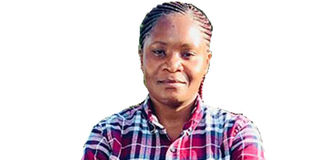Prime
The real cancer is MPs debating non-issues, not homosexuality

Val Kalend
What you need to know:
- We are better Ugandans when we treat fellow Ugandans with the humanity they deserve.
A society that chooses to dehumanise a group of people on whatever basis is a society that needs to take an honest look at itself and ask if it is not becoming its own enemy.
How anti-gay Ugandans treat LGBTQ citizens says more about the moral failure of our society than it does about a group of people whose dignity is disparaged. It pains me that nine years since the first Anti-Homosexuality law was annulled by the Constitutional Court, LGBTQ Ugandans find themselves in a fight for their lives in the face of another senseless Bill.
We are a nation of people who practice hospitality to foreigners who come from overseas and across our land borders, but we find ourselves unwilling to affirm the most basic dignity of our people. The moral failure of the proposed anti-gay Bill is that it diverts attention from issues lawmakers should be addressing and wages unprovoked war against the LGBTQ community.
The proponents of this Bill have called homosexuality a ‘cancer’ when the real burden of cancer rests on the shoulders of cancer patients, families with cancer patients, and healthcare workers who know that they deserve and demand more from the government. MPs have pejoratively called homosexuality a “human wrong.” But that does not take away the fact that LGBTQ rights are human rights.
The “human wrong” MPs must debate and “human right” is the fallen state of our public healthcare facilities. The real burden of cancer that our lawmakers must address is care and treatment for cancer patients.
We are better Ugandans when we treat fellow Ugandans with the humanity they deserve.
We can harness the contributions of all Ugandans and journey to a Uganda of greater acceptance, of diversity and inclusion.
People who have never felt the experience of having a gay friend, gay child, or gay sibling, are the most likely to show interest in animosity and hate campaigns targeting the LGBTQ community. It is a proximity problem, and one that typifies what journalist Musaazi Namiti stated in his recent article: that the gifts that LGBTQ people bring to this world are just enough to prove their God-given humanity. It is morally wrong that LGBTQ people should be forced to mask or go against who they are in the name of societal constructs like conventionality.
So-called “ex-gay” activists simply need to go on a long break and heal their internalised homophobia.
Many watched closely as I tried to fit into an “ex-gay” life that was sad and bizarre on its most unfortunate stage. Though that was not a moment I am proud of, I know that whatever journey I was on has brought me healing—an opportunity to look back on those moments and make sense of the real challenges of religious trauma and the unique ways it affects every individual by its perceived complexity. I had to lose myself to find myself. We all have our unique experiences and mine may not represent the experiences of some LGBTQ individuals who have wrestled with questions of faith and sexuality in a society where our faith/religious communities do not support us to be our authentic selves.
LGBTQ people know too well the damage of spending our whole life being ridiculed, abused, discriminated against, ostracized, and rejected. Or told, “you are not human” and if you’re human, “something is wrong with you.”
I have never understood why some people believe that LGBTQ people choose to be gay. That concept (of choice) has always baffled me, especially because I know from lived experience that LGBTQ people experience some of the worst forms of discrimination and violence.
The author, Val Kalende is a scholar of Queer Theology.
[email protected]




